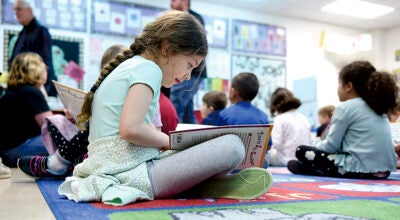In Your Community: Brownsdale Study Club
Published 6:27 pm Tuesday, November 1, 2022
|
Getting your Trinity Audio player ready...
|
The Brownsdale Study Club met at the home of Fern Paschke on Oct. 18. President Shelley Vogel opened the meeting with the reading of the Collect. Five members answered the roll call, “Can you freeze eggs? The minutes and treasurer’s reports were approved.
Under old business, final plans were made for the outing to Rushford. Under new business, Fern made a motion to gift Carter Vogel $50 from our treasury, seconded by Mary Kidwiler Moritz. Carter will use the money for expenses when he attends the Macy’s Thanksgiving Day Parade. He plays the alto saxophone with the South Dakota State University band.
Mary made a motion to adjourn, seconded by Fern.
Mary’s blast from the past highlighted the Oct. 15, 1986 meeting. Hazel Schlichting hosted with 10 members present. Roll call was “What is your favorite house plant?” The outside reading was entitled, “The Sweet Potato Perplex.”
Sweet potatoes are not the same as yams. In comparison, sweet potatoes are smaller and have brownish skins and drier flesh. Neither sweet potatoes nor yams are related to ordinary potatoes.
Evelyn Larson presented the main topic, “Growing Up with the Campbell Soup Kids.” The Campbell Soup Co. was founded in 1869 canning tomatoes, vegetables, jellies and mincemeat. The Campbell Soup Kids made their debut in 1904, and at the height of their popularity (from the 1920’s to the 1950’s) the children received almost unmatched recognition.
Mary presented the main topic, “Reconsidering Wasps.” Wasps are both loathed and feared. Rather than nurtured in a wildlife garden, they are more likely to be swatted or sprayed with poison. Today scientists are determined to give wasps the respect they are due. Research has produced evidence that wasps are highly significant for the world’s economy and ecosystems. Without them our planet would be pest-ridden because of reduced biodiversity. Wasps get a bad name because a handful of the species sting. While bees also sting, the general population has been taught to nurture bees because they serve as major pollinators. Wasps are also pollinators, as well as seed dispersals and pest controllers. Only about 1.5% of wasp species are likely to sting people if provoked. Unless a nest is near a door, walkway, deck or child’s play area, leave the insects in peace and let them do their jobs. If you desire a wildlife garden, grow a diversity of native flowering plants to attract wasps. Even though wasp larvae are carnivorous, adults switch to the carbohydrates found in nectar, sap and fruit. Goldenrod is one of their favorite plants.
Fern served a delicious pecan pie.
On Oct. 22, the Brownsdale Study Club enjoyed an outing to Rushford. Stops were made at Metz’s Dairy (home of fry cheese) and Norsland Lefse. Many enjoyed a lunch that included a wrap made with lefse. We took the scenic route highway 16 home, enjoying what was left of the fall colors.





